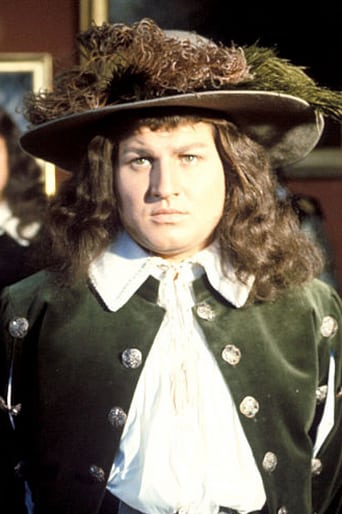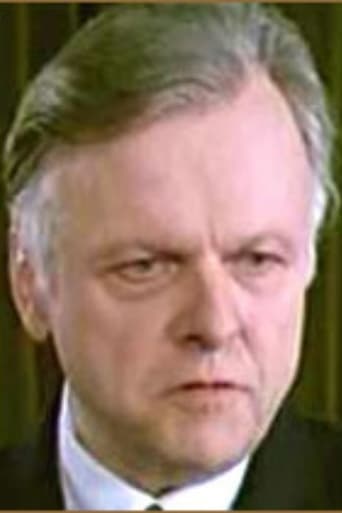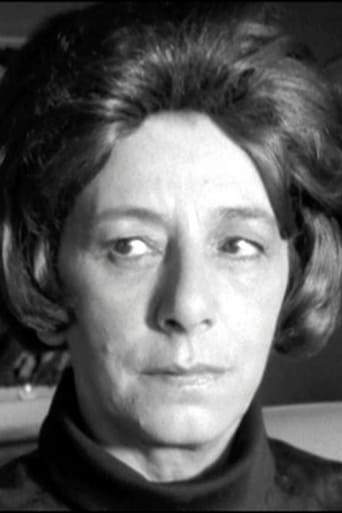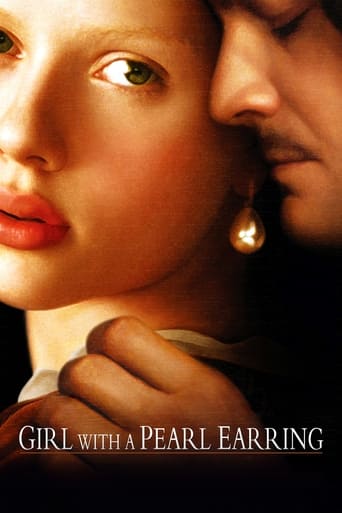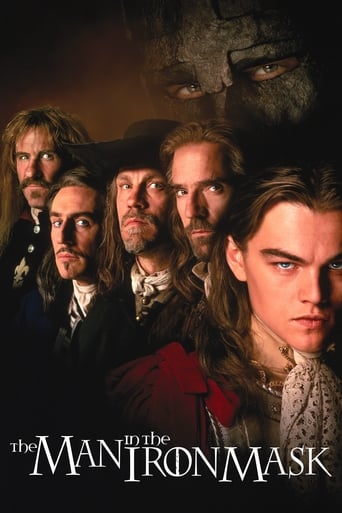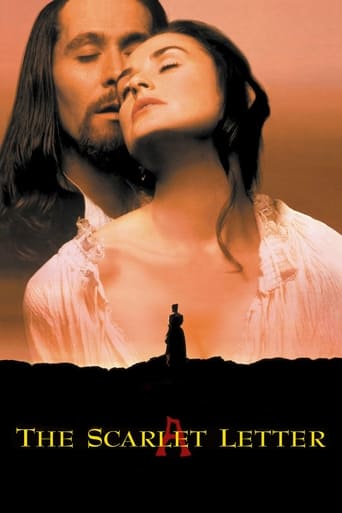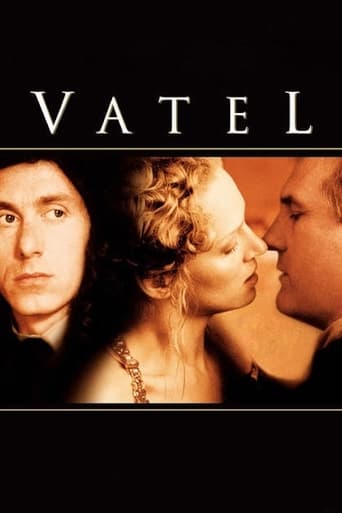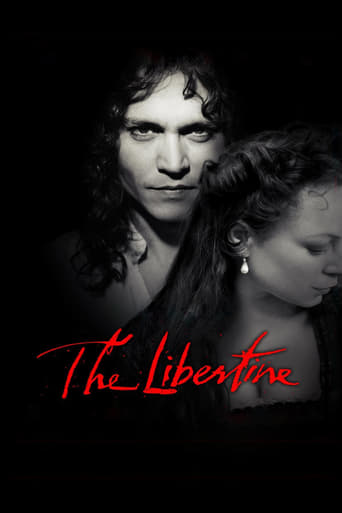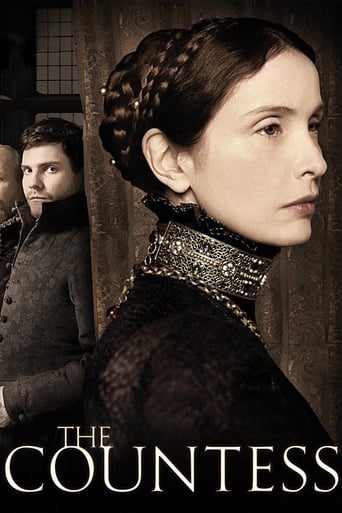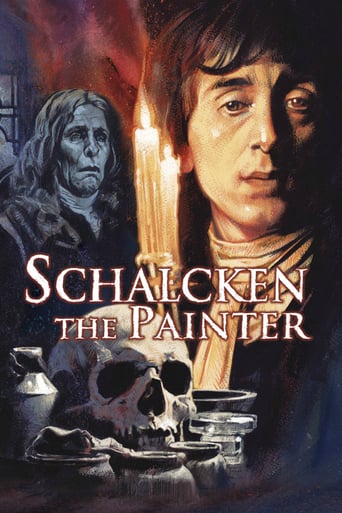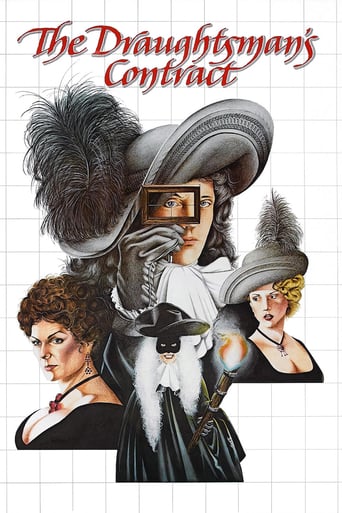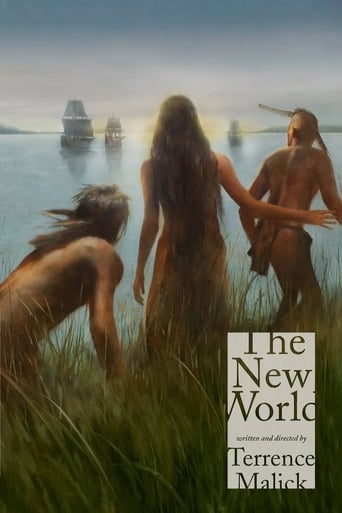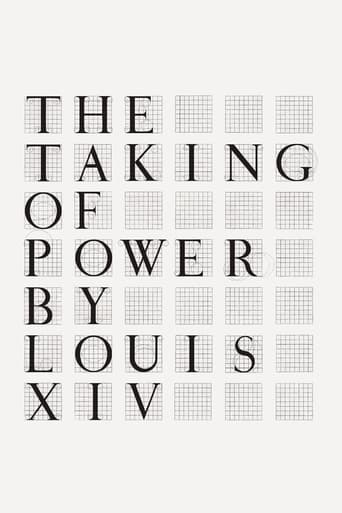
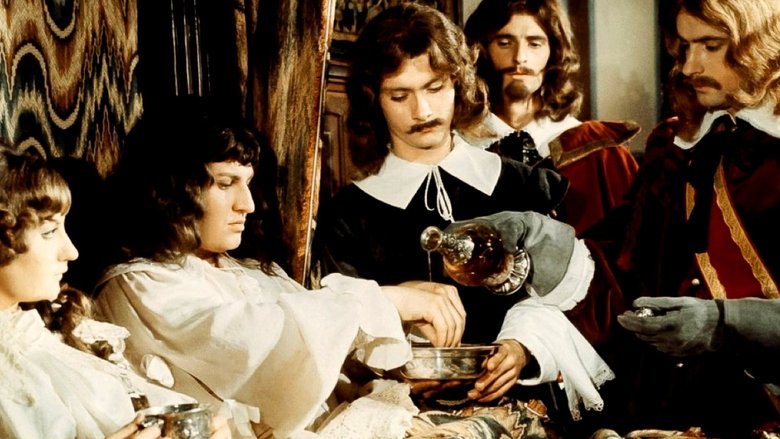
The Taking of Power by Louis XIV (1966)
Cardinal Mazarin dies, leaving a power vacuum in which the young Louis asserts his intention to govern as well as rule. Mazarin's fiscal advisor, Colbert, warns against Fouquet, the Superintendant who has been systematically looting the treasury and wants to be prime minister. Fouquet believes Louis will soon tire of exercizing power and overplays his hand by offering a bribe to Louis' mistress to be his ally. She reports this to the king who arrests Fouquet. Louis and Colbert design a brilliant strategy to keep merchants making money, nobles in debt, the urban poor working and fed, and peasants untaxed.
Watch Trailer
Cast
Similar titles
Reviews
I like movies that are aware of what they are selling... without [any] greater aspirations than to make people laugh and that's it.
This movie was so-so. It had it's moments, but wasn't the greatest.
This film is so real. It treats its characters with so much care and sensitivity.
Strong acting helps the film overcome an uncertain premise and create characters that hold our attention absolutely.
Roberto Rossellini directed a string of biographies in the 1960s and early 70s, all of which revolved around famous historical figures (Christ, Pascal, Descartes, Socrates, St Francis, St Augustine, King Louis XIV, Giuseppe Garbaldi, and one unrealized project about Marx), and all of which utilized a sparse, stripped down aesthetic which revoked the pomp and pageantry typically ascribed to such characters.The earliest of these films, if one ignores "The Flowers of St Francis" and "Viva L'Italia" (aesthetically, they don't quite belong to Rossellini's "new phase"), is "The Rise to Power of Louis XIV", released in 1966 and funded by a French television production company (Rossellini turned to television after a string of box office flops). Starring Jean-Marie Patte as King Louis, the film begins with the death of Cardinal Mazarin, the incident which marked Louis' ascension to the throne of France. What follows is less an attempt to demystify Louis than a lesson in realpolitik. Rossellini draws parallels between kings and film directors, politicians and actors, and dwells on what he sees to be a widening gap between appearance – the calculated, outer face of power and politics - and everyday reality. And like Visconti's "political" films, "The Rise to Power of Louis XIV" is implicitly about the birth of the modern nation state, the decline of feudalism and the rise of the bourgeoisie, though unlike Visconti, who was prone to nostalgia, Rossellini adopts a more cosmic tone; he sees transience and inevitable decay in all things.Rossellini's "Socrates" was released five years later, and focuses on the philosopher's later years. Comprised mostly of dialogue, all terse and to the point, the film is Rossellini's advocation of reason and intellect, traits which themselves land Socrates in hot water, as he is put on trial and sentenced to death for "corrupting youths" and "opposing the state". Released in the midst of both Vietnam and the Cold War (and the nuclear arms race, a new age of unreason), the film is both Rossellini's attempt to put hippies and activists in togas and sandals, and a call to arms; test the Gods with a hammer, question leaders and be warned that any state which craves power will stop at nothing to maintain its grip on such.In 1972 Rossellini released "Blaise Pascal", his somewhat cold examination of the seventeenth-century scientist and mathematician. The film revolves around a court of judges, one of whom is Pascal's father, who accuse a servant of practising witchcraft. What Rossellini is really presenting, though, is the flip-side to "Socrates". Here we observe men of the state as they behave irrationally in the guise of utmost rationality. This is a cautionary tale about the death of enchantment, and the danger of cold, iron logic, which commits crimes in the guise of truth and denies a certain all-inclusiveness or subjectivity. Mirrrored to this tale is Pascal's own existential crisis, and fear of what he calls "the void of infinity". To deal with this void "we need a multitude of methods", Pascal says, which echoes the sort of "atheistic spirituality" Bergman was likewise dealing with at the time. For both directors, reason without spirit is as icy and destructive as spirit without reason (in interviews, Rossellini would cite "atheism" as itself a prejudice. What he strove for was what he called "knowledge without dogma"). The film ends with a brilliant sequence which strongly recalls Bergman's chamber pieces, Pascal "embracing" God on his deathbed, his room darkening whilst a maid lights a feeble candle.Sandwiched between "Socrates" and "Pascal" was Rossellini's "Augustine of Hippo". If Rossellini's earlier "biographies" trace the formation of the modern nation state, the rise of the post-faith moment, the dangers of subsuming all things to post-enlightenment rationality, then "Augustine" takes the next step and critiques covetousness and the "logic" of a budding, 21st century capitalism. "Tear the greed out of your heart," Bishop Augustine of Hippone preaches, as he urges his listeners to turn their backs to the "cult of the senses" and the "worship of youth". Alongside this is the film's clash between Augustine's meek band of non-violent monks and the Donatists, a group of violent "heretics" who themselves become the recipients of violence when Rome Falls. At this point Augustine urges his followers to embrace and help their Donatist foes. By the film's end, Rossellini has captured an odd paradox; mankind both torn apart by Christian morals, and dependent on Christian morals for survival.Rossellini released "Descartes" in 1974 and "The Messiah" one year later, one about seventeenth-century philosopher Rene Descartes the other about Jesus Christ, but both about quiet men of reason who advocate clarity and honesty in a world overrun by dogma. In "Descartes", such dogma spews, ironically, from men of science, all of whom are tainted by personal prejudice and bias. Science is the new faith, the new gospel, the new irrationality, Rossellini states, a problem with Descartes rectifies with his "twenty one rules", which replace Christ's ten commandments with a set of instructions designed to foster a methodical approach to testing which lessens errors, ulterior motives, preconceptions and prejudice.Meanwhile, in typical Rossellini fashion, Christ is portrayed not as a deity, but a blank slate upon which his followers blindly project their burdens, wants and needs. Rossellini's Christ is a resonant tabula rasa, and it is ultimately others who turn him into the son of God. In this regard, Christ's followers are turned into a parody of irrationality, whilst those naysayers whom films typically show lambasting Christ as a conman and charlatan, are shown to be simply reacting against illogical, scripture twisting "Christians" who are, at worst, a dangerously irrational mob, at best, actual revolutionaries.8.5/10 – One of Rossellini's better biographies.
Roberto Rossellini was an intriguing director who made a handful of great films and an awful lot of mish mash. While Rossellini never found much popular acclaim for most of his movies, he certainly found it among some of his fellow directors, notably Truffaut and Scorsese. Whether that means Rossellini was a great director might depend on how you much you appreciate artists praising each other. It is, however, just about impossible to underestimate Rossellini's impact on neorealism in movies, just as it's impossible not to take seriously any director who could make Open City, Paisan and Il Generale Della Rovere. So what is The Taking of Power by Louis XIV? Rossellini made it for French television when his career and reputation had faded. He was 60, and would be dead eleven years later. He still made movies regularly and, increasingly, worked in television on major presentations. He made movies because this is what directors do. He wasn't forgotten, exactly, and there were those who saw in him the neorealistic genius he once was. Perhaps he forgot along the way that the story must engage, and that dedicated technique may not always be enough. If Luigi Minecolli had been the director of The Taking of Power by Louis XIV instead of a director named Roberto Rossellini, would the TV production be remembered, even by cineastes? Well, who remembers the director of The First Churchills? Louis, in 1661, is about to grasp the power of his throne. He's 22 years old and has worn the crown since just before his fifth birthday. The death of the power behind the throne, Cardinal Mazarin, gives Louis the opportunity to be the king, not just play at it. Louis succeeds so well we remember him as The Sun King. (Of course, for his last couple of decades he should be better remembered as The Death, Disaster and Crushing-Taxes-for-Everybody-But-the- Nobility King. But all this is another story.) Rossellini not only shows us the intrigue, the primping, the groveling and the backstabbing that come with the accumulation of power, he shows us those realistic details that make cardinals and kings into men, not always inspiring men and sometimes dead men. This was a time when physicians diagnosed by way of a whiff of the chamber pot and who bled their patients with abandon. The death of Mazarin begins the movie, and the Cardinal's confession to his priest is amusingly self-serving. This scene, as with the movie, is so deliberate and calm as to want us to help speed God's hand in closing the Cardinal's eyes. The Cardinal has a lot of exposition to deal with before that happens. And when it does, Louis, to the consternation of his ministers, his courtiers and his powerful mother, begins to make decisions for himself. There is intrigue, ego, avarice and ambition...and it all proceeds with such stateliness that it would be very hard going without all those magnificent wigs, velvet curtains, lush costumes, beplumed hats and the stultifying but amusing rules and courtesies of the court. Louis himself, played by Jean-Marie Patte, is a plump, short, shallow, spoiled but sly young man, who much prefers skinny dipping with his mistress than amorous visits to his wife. He sounds like Peter Ustinov. He looks ridiculous in his high wigs and his beribboned, belaced and bevelveted knickers. Louis must deal with his mother, with Fouquet, with the building of Versailles, with bringing the nobility to heel and with all those elaborate, lengthy 17-course meals he would eat in solitary splendor in front of his courtiers and ladies. In many ways the preparation of one of these meals, its nervous supervision, stately serving and blank-eyed consumption by the king is the best sequence in the movie. I have no idea if Patte was simply a limited actor or whether he was directed poorly. One critic reports that Rossellini would not give the actors their dialogue until just before a scene, and insisted that they use written cheat boards out of camera range if they had trouble. If this is the case, we can only sympathize with Patte, who is forced to speak in ponderous epigrams and declarations of shrewd and emotionless intent. The taking of power by Louis XIV...the history...is a great and dramatic story. The movie, on the other hand, looks just fine and, if you enjoy the high doings of those convinced they are our betters, interesting. But the teleplay also is dull, dispassionate and without pace. Patte's acting leaves a great void in the center of the story. Rossellini has produced a lavish, stately teleplay about a French king, undoubtedly exactly what his French producers wanted. I don't believe there is a trace to be seen of the Rossellini of Open City and Paisan.
Lethargic minimalist film about Louis XIV's rise to power in the mid 17th Century. I suppose if I had a greater interest in the time period or historical characters, I wouldn't have been bored. Case in point, several months ago I saw another of Rossellini's biopics from the same period, Socrates (1970), and, as I am a classics scholar, I liked it very much. I know a lot about Socrates, but almost nothing about Louis XIV. Both are similar in style (although Louis has much less dialogue). I guess Rossellini's point was to subtract the usual pomp and circumstance that surrounds the European royalty of this historical period, depicting everything in a very realistic light. I think I can make at least two legitimate criticisms against this film: 1) I think it takes too long with the first act, the Cardinal's death. It takes more than a half an hour of a 100 minute film (actually, the Hen's Tooth video falls about 9 minutes short of that mark). We learn nothing much about what is actually going on during this half hour. 2) Jean-Marie Patte, who plays Louis XIV, seemed particularly passionless to me. I did like some parts, or at least I found them interesting. At one point, Louis designs his now-famous costume. He tells his subordinates that all nobles will be dressed in exactly the same way. In the following scene, they are. I also liked the meal scene, where we, as well as everyone else in his court, watch as patiently as possible as Louis eats course after course. The nobles in the court feign interest. What weird customs we humans have developed. I wouldn't suggest The Rise of Louis XIV unless you are interested in the period, or are a huge fan of Rossellini. 6/10.
This movie's a good history lesson and nothing else. Very authentic, but somewhat dragging. The actor playing King Louis XIV can't act, which makes it a little irritating as he's the main character. He's just not up to the part. In the movie the king makes all the wise decisions that affected France for years to come in the space of a minute, but as everyone knows Rome wasn't built in a year.
